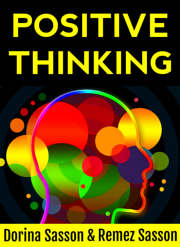
When you are living under constant stress, it is hard to perform your best. This is particularly true for difficult and turbulent times caused by global challenges. Although we all have some experience with that after the COVID-19 pandemic, it is still important to integrate healthy ways to deal with such circumstances.
It is completely normal to feel a lack of focus or motivation to do your job when you are under huge turmoil. Yet, it is crucial to get back on your feet as soon as possible. Together with Jooble experts, we’ve gathered the best tips on how to manage that.
Dangers of Constant Stress
Although it might not seem like a big deal at first, constant stress may result in serious consequences. Such emotional and physical pressure may lead to:
- Burnout
- Reduce immune response
- Anxiety
- Depression
- Cardiovascular disease and high blood pressure
- Eating disorders and obesity
- Problems with skin, nails, and hair
- Gastrointestinal problems
The first step is to acknowledge the issue and act accordingly. Do not try to minimize or discharge the circumstances you are dealing with.
Analyze your stressors
Start with writing down all the things that trigger this response. Surely, some of them you cannot control, like global challenges. But there are probably some smaller things that add to the picture. Some of them might be subtle, yet, when combined with all others, they make the tension unbearable.
Follow yourself for a week and write all such occurrences down. Think about how this made you feel and whether there is a way to resolve it. Maybe you can cut out toxic interactions, get a comfortable chair, or alter your morning routine.
Manage Technology Use
One of the major factors that impact almost everyone is access to easy distractions. With a smartphone, it is easy to lose focus and shift attention to anything but your job.
Limit the use of technology during working hours. Put your notifications on mute or turn airplane mode on.
Also, be aware of how the constant flow of news affects you. The huge pile of negative news will take a toll on anyone. Filter your informational flow and make a habit of turning it off.
It is important to put yourself as a main priority.
Take Regular Breaks
When you plan your day, add breaks to the schedule. It is essential to recharge during the day. The best idea is to do something rejuvenating during this time. Something that makes you feel better and helps relax, for instance:
- A little walk outside
- Listening to music
- Reading a nice book
- Playing with your pet
- Breathing exercises or meditation
- Physical exercises
This will shift the focus to the activity you enjoy and reduce cortisol levels. And this is a perfect opportunity to get some internal resources to continue.
Focus on the Purpose
In a time of turmoil, one might find themselves spiraling down the rabbit hole of “what if” or “what can happen”. This is a draining pattern that will only take away your mental and physical resources.
Accept the fact that not everything is in your control. This is just how the world works. Change the focus to what is in your control and the purpose of your work.
When you create a schedule, think of the goal of each task. Also, consider bigger purposes – career growth, better income, self-development, or the opportunity to buy something you need. Keeping the goal in mind helps maintain internal motivation.
Self-Care Triad
Our mental and physical states are deeply connected. It is essential to take care of both to feel better and stay productive. From the physical point, a self-care triad includes nutrition, exercise, and sleep. Those are three major factors you need to focus on.
Good nutrition, healthy sleep, and regular exercise ensure internal resources, mental stamina, and stress resilience. Enrich your diet with all the necessary nutrients and vitamins. Try to go to bed and wake up at regular hours and get enough sleep.
You might feel like you have no energy for physical exercises, but the trick is that you’ll feel more energetic afterwards. So, the hardest thing is the beginning. It doesn’t have to be something incredibly challenging. A regular walk, bike ride, yoga, or hike can do the trick.
Practice Self-Compassion
Being too hard on yourself is never going to do any good. It is a toxic pattern that only reduces focus and motivation. Practice self-compassion instead.
Be supportive and understanding of what you are going through. If it seems hard, imagine how you’d talk to a friend in this situation. Treat yourself as if you are your best friend in need.
Stop Multitasking
First of all, it never really works. Secondly, it is harmful to your productivity and cognitive performance. The human brain is not wired to focus on two things at one time. What seems like it, is just constant switching of attention.
This will make one tired faster and less efficient. Instead, set small and achievable goals and do one thing at a time.
If you are working on a huge project, divide it into a list of steps to take. It won’t feel so overwhelming and you’ll have clear requirements for each one.
This allows beating procrastination and anxiety.
Try Stress-Relieving Techniques
During breaks, try some of the available techniques that help to relax. This can be a 5-minute breathing exercise, meditation, or yoga. You can try online apps for guided meditation and mindfulness.
Or it can be something as simple as a favorite hobby – knitting, drawing, or crafting. Focus on the present and on little joys.
In Summary
It can be extremely challenging to stay productive at work during difficult times. The secret to being effective is acknowledging the problem and taking action on it. Practice self-care, be reasonable with time management, and focus on the purpose.


